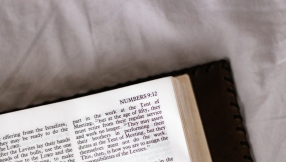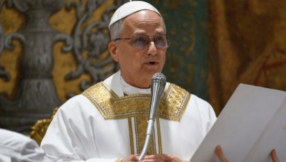Archbishop: 'Lebanon Conflict Greatest Recruiting Tool for Muslim Extremists'
The violence in the region could continue for years, Dr John Sentamu warned. He issued the prediction as he ended his seven-day fast and vigil in a tent for peace in York Minster. As he did, he immediately called for international efforts to be intensified to end the troubles.
“The events of the past weeks, in the Lebanon, Israel, the United States and Britain, have demonstrated that we cannot afford any longer to leave the issues of the Middle East in the pending tray of unresolved business,” the primate said.
He went on: “There is no greater recruiting sergeant for would-be Jihadists than the conflict in the Middle East. Without urgent action on our part, for their sakes and our own, the spiral of violence that has lasted longer than the whole of my life-time — and I am 57 — will continue unabated, as new generations become mired in the enmity of their forefathers.
“After seven days of fasting and praying I am more persuaded than ever that wars and violence cannot lead to a long-lasting solution.”
|AD|The archbishop added: “The road to peace is not an easy one, but we need to stick to it. The dividends of peace are incalculably greater than the wages of conflict which have been paid over decades in the Middle East in the countless widows, orphans and displaced peoples produced by conflict.”
Dr Sentamu abandoned plans for a seven-day family holiday in Austria to spend the week surviving on water and glucose and living in the tent pitched in the Minster’s chapel of St John.
Throughout the week he took a 15-minute service each hour when he was joined by pilgrims who prayed with him for peace in the Middle East.
His tent will remain pitched in the cathedral as a symbol of the continuing need for prayer until a United Nations peace-keeping force is deployed to southern Lebanon.
As his vigil ended, the Uganda-born archbishop also reiterated calls for a greater unity among Britain’s communities to avoid the threat of terrorism and extremists.
He said: “We must look at our own nation, our own children growing in a society which does not always foster inclusion and generosity as our priority. It is surely fear and anxiety which leads to aggression.
“I continue to invite people to come and to offer prayers of peace in this place for the
Middle East, for our nation and for peace in our own hearts.”













